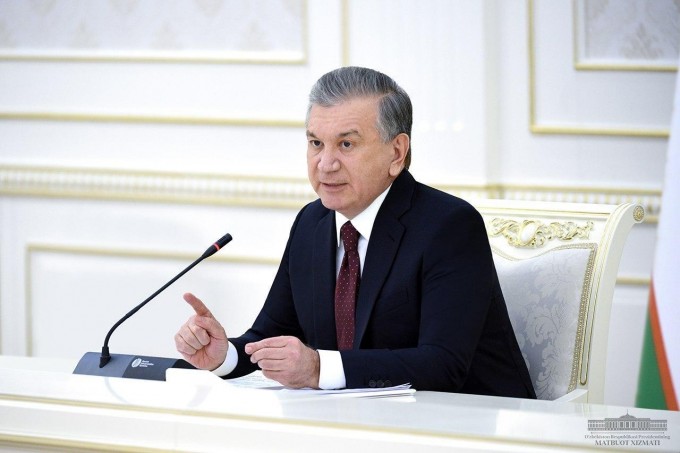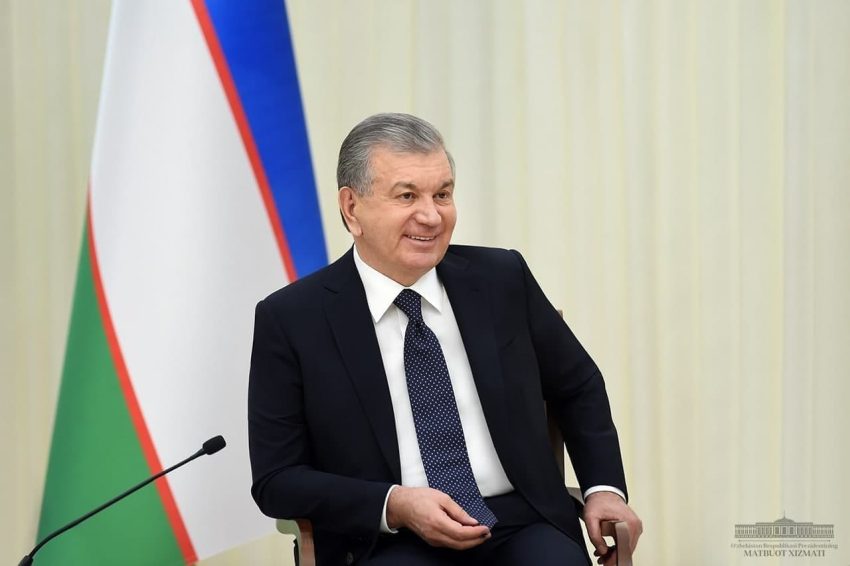Cultivating Global Alliances: Foreign Investment Drive in Uzbekistan
In 2016, Uzbek President Shavkat Mirziyoyev assumed leadership in Uzbekistan, signaling an era of dynamic economic revitalization. Swiftly, the government pivoted to attract foreign investments by crafting investor-friendly policies, hosting investment forums, and initiating a program to privatize state assets. The overarching objective was to stimulate economic growth through increased foreign capital infusion.
The establishment of the Foreign Investors Council by President Shavkat Mirziyoyev underlines Uzbekistan’s commitment to fostering an inviting environment for investors. This council, dedicated to enhancing the nation’s investment climate, uniquely integrates direct input from investors, ensuring their perspectives shape future policies.
President Mirziyoyev’s invitation for foreign investors to actively engage in the Council reflects Uzbekistan’s aspiration to create a collaborative framework where foreign investors actively contribute to steering the nation’s economic trajectory.
The global business community, particularly those vested in Central Asia, responded positively to Uzbekistan’s economic reforms. Foreign business leaders lauded the liberalization of monetary policies and streamlined visa protocols, acknowledging these changes as instrumental in facilitating robust collaboration between Uzbekistan and foreign investors, nurturing mutually beneficial relationships.
Investments in Uzbekistan’s primary capital have exhibited consistent growth, registering a 7.9% surge in the second quarter of 2023, following a 3.1% increase in the preceding quarter, according to data from the State Statistics Committee.

Under President Mirziyoyev’s stewardship, the ties between Uzbekistan and the European Union have strengthened across various spheres, spanning politics, trade, culture, and humanitarian efforts.
In 2022, the European Bank for Reconstruction and Development (EBRD) allocated nearly $900 million to support 26 diverse projects in Uzbekistan. These initiatives, spanning renewable energy endeavors to pivotal banking operations, surpassed the EBRD’s previous investment benchmarks in the country.
The escalation in EBRD’s commitments underscores a burgeoning partnership with Uzbekistan and mirrors the nation’s alignment with international developmental goals. It also highlights Uzbekistan’s attractiveness for foreign investment, drawing attention through proactive reforms.
Collaborating with leading European entities and financial institutions, joint projects in Uzbekistan surpass €20 billion. President Mirziyoyev anticipates these initiatives to reshape the industrial landscape across Eurasia.
European involvement in Uzbekistan’s markets has significantly expanded following Mirziyoyev’s leadership. Entities like the European Investment Bank (EIB), Volkswagen, Peugeot Citroën, and Carrefour have made notable inroads into Uzbekistan’s automotive and retail sectors.
European conglomerates, including EDF, Siemens, Veolia, and Total Eren, have embarked on substantial investments in Uzbekistan’s renewable energy sector. These endeavors, as emphasized by Mirziyoyev, play a pivotal role in modernizing the nation’s infrastructure.

Privatization remains a linchpin for enticing investors to Uzbekistan. Notably, the sale of a state stake in Coca-Cola Bottlers Uzbekistan, Ltd LLC to CCI International Holland BV for $252.28 million in 2021 underscored its significance.
The robust Partnership and Cooperation Agreement between the EU and Uzbekistan, established in 1999, spans various realms from political dialogue to economic cooperation, emphasizing their shared commitment to progress.
European companies’ involvement in Uzbekistan’s renewable energy sector showcases the depth of this burgeoning partnership, contributing not only to cleaner energy sources but also to infrastructure modernization.
In summary, under President Mirziyoyev’s strategic leadership, Uzbekistan continues to evolve economically. The country’s proactive approach in attracting foreign investments, especially from European entities, propels its trajectory toward modernization, underscoring a commitment to sustainable growth. The growing alliance between the EU and Uzbekistan epitomizes the positive transformations underway, promising mutual advancements and prosperity.”

